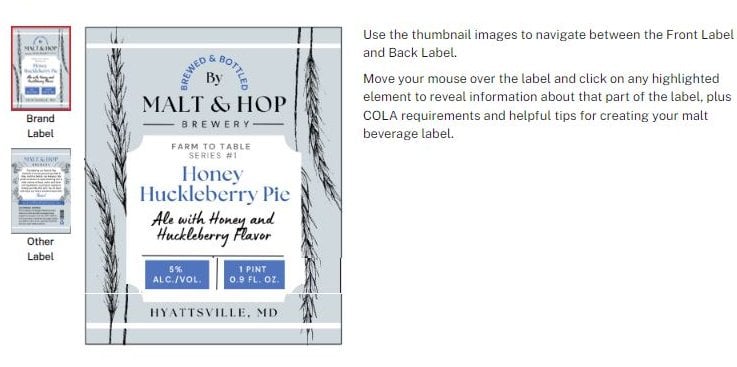
In its latest newsletter FAQ, the Alcohol and Tobacco Tax and Trade Bureau (TTB) addressed the topic of using social media influencers within brewery marketing.
TTB advertising regulations apply to advertisements published, disseminated, or caused to be published or disseminated by an industry member directly, indirectly, or through an affiliate. Accordingly, if an industry member causes a social media influencer (for example, by payment or other thing of value) to create content that advertises the industry member, its brand, or a specific product, TTB would consider such content as an advertisement under 27 C.F.R. §§ 4.61, 5.232, and 7.232.
Accordingly, such advertisements must contain all mandatory statements required by the regulations (in §§ 4.62, 5.233, and 7.233). Additionally, the regulations regarding prohibited practices or statements (in §§ 4.64, 5.235, and 7.235) also apply.
This Industry Circular elaborates on all of that in excruciating detail. Here are some highlights that pertain to the influencer topic:
What is an advertisement? The definition of “advertisement” includes any written or verbal statement, illustration, or depiction that is in, or calculated to induce sales in, interstate or foreign commerce, or is disseminated by mail. The regulations list specific examples of advertising, including those appearing in the “internet or other electronic site or social network” and those in “any other media.”
What is a Social Media Influencer (SMI)? SMIs are personas on social media who have audiences or followers on social media platforms who sometimes use their influence to persuade their audience to purchase products. Material produced by SMIs, on behalf of an alcohol beverage industry member for the purpose of inducing sales of that industry member’s products in interstate or foreign commerce, must comply with the TTB advertising regulations as specified in the general section above. These individuals may be compensated (monetary payments, provision of free products, etc.) for their endorsement of a product, or for product placement as part of an associated activity.
For example, an SMI with a focus on cooking may be compensated to use a particular brand of wine in instructional videos when demonstrating a recipe. These posts, which may include text or other media, will typically appear on the SMI’s own social media account or page, instead of appearing on the industry member’s social media account or page.
If the posts directly or indirectly advertise an industry member, brand, or specific product, TTB may consider such posts made by the SMI to be advertisements. In making this determination, TTB will consider:
- whether or not an industry member directly, indirectly, or through an affiliate published, disseminated, or caused to be published or disseminated, any advertisement; in this case, the SMI’s posts; or,
- if the SMI was compensated directly or indirectly by the industry member in return for the endorsement.
All mandatory advertising statements must be included in the same manner as required for industry members’ social media sites. This requirement may be satisfied with a clearly marked link to another webpage that contains all mandatory information, as discussed above.
If you have any questions concerning this circular, contact the Market Compliance Office by phone at




Leave a Reply
You must be logged in to post a comment.